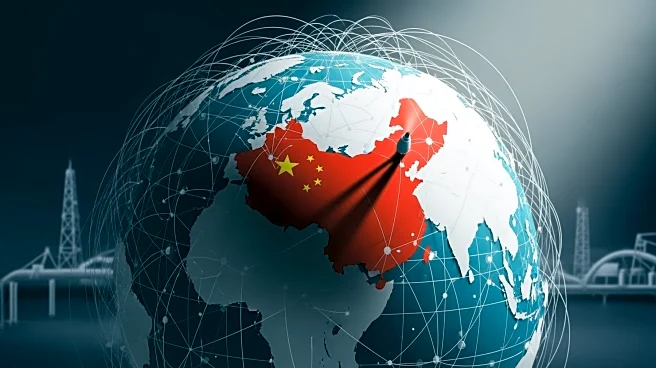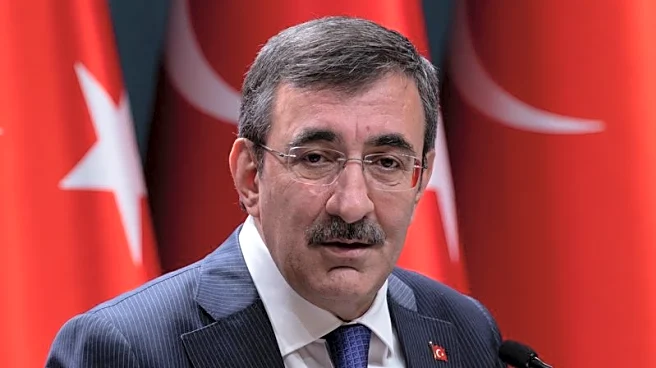What's Happening?
The United States has imposed sanctions on Russian energy giants Rosneft PJSC and Lukoil PJSC, affecting China's oil industry significantly. These sanctions are part of broader measures by the US, European
Union, and UK targeting Russian crude buyers to limit Moscow's financial resources for its war efforts in Ukraine. China, which imports about 20% of its crude oil from Russia, faces challenges in maintaining supply chains while avoiding penalties. The sanctions require transactions with the Russian firms to be wound down by November 21, posing risks for Chinese and Indian companies that deal with these entities. These risks include potential exclusion from Western banking systems and global commodities markets, which are crucial for oil trade.
Why It's Important?
The sanctions have significant implications for global oil markets and geopolitical relations. For China and India, major importers of Russian oil, the sanctions could lead to increased energy costs and supply chain disruptions. Companies in these countries must navigate the complex landscape of compliance to avoid secondary penalties, which could impact their access to Western financial systems and oil projects in regions like the Middle East and Africa. The sanctions also affect Western firms involved in these projects, potentially altering investment dynamics and operational strategies. The broader impact includes potential shifts in global oil supply chains and pricing, influencing energy costs for industries and consumers worldwide.
What's Next?
Chinese and Indian companies must decide whether to comply with the sanctions or continue their dealings with Russian firms. Compliance would mean losing access to discounted oil supplies, while non-compliance risks exclusion from major oil projects and financial systems. The situation may lead to strategic realignments in global oil trade, with companies seeking alternative sources or negotiating new terms with existing partners. Additionally, the sanctions could prompt diplomatic negotiations between affected countries and the US to mitigate economic impacts and explore potential exemptions or adjustments.
Beyond the Headlines
The sanctions highlight the ethical and legal complexities of international trade amid geopolitical conflicts. They underscore the challenges countries face in balancing economic interests with political pressures. The situation may lead to long-term shifts in global energy policies, encouraging diversification of energy sources and increased investment in renewable energy. It also raises questions about the role of international sanctions in influencing global trade and political dynamics, potentially setting precedents for future conflicts.











